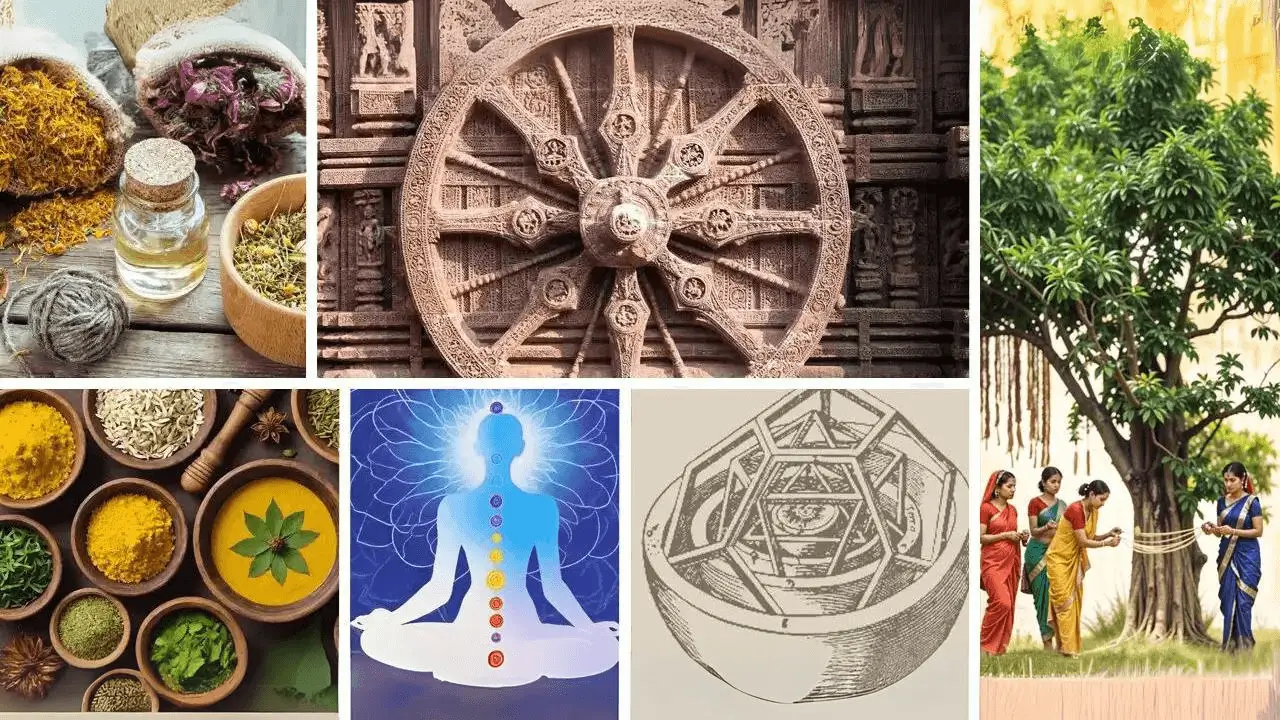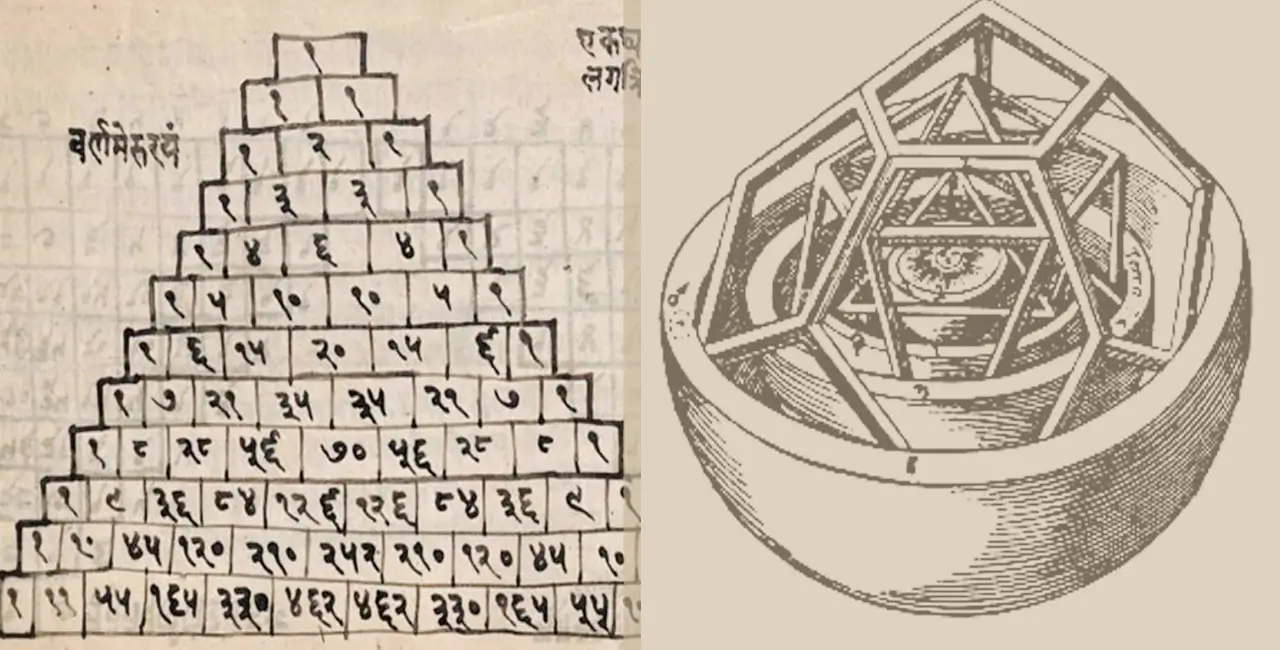Exploring the Scientific Insights within Hinduism

Various scientific principles and observations that have been recognized over centuries. Some scientific points in Hinduism include.
Concept of Time and Cosmology

Hindu scriptures, such as the Vedas and Puranas, contain intricate descriptions of cosmology and the concept of time. They discuss the cyclical nature of time, the concept of yugas (epochs), and the vastness of the universe, reflecting early attempts at understanding cosmological phenomena.
Ayurveda

Ayurveda, the ancient Indian system of medicine, is rooted in Hindu philosophy and emphasizes a holistic approach to health and well-being. It incorporates knowledge of herbal remedies, dietary practices, yoga, and meditation to maintain physical, mental, and spiritual balance.
Yoga and Meditation

Hinduism has contributed significantly to the understanding of the mind-body connection through practices like yoga and meditation. These practices have been scientifically proven to have numerous health benefits, including stress reduction, improved flexibility, and enhanced mental clarity.
Environmental Conservation

Hinduism teaches the concept of dharma, which includes the duty to protect and preserve the environment. Many Hindu rituals and festivals are centered around nature and promote ecological balance, reflecting an early understanding of humanity’s interconnectedness with the natural world.
Astrology and Astronomy

Hindu astrology, known as Jyotish Shastra, is based on the movement of celestial bodies and their influence on human lives. While astrology is considered a spiritual practice, it also incorporates astronomical observations and calculations.
Mathematics and Geometry

Ancient Hindu mathematicians made significant contributions to the field of mathematics, including the invention of the decimal system, algebra, and trigonometry. Hindu temples and architectural marvels also exhibit advanced geometric principles and mathematical precision.
Natural Remedies and Herbal Medicine

Hinduism emphasizes the use of natural remedies and herbal medicine for healing various ailments. Many medicinal plants and herbs mentioned in Hindu scriptures have been scientifically studied and recognized for their therapeutic properties.
While these scientific points are present within Hinduism, it’s essential to acknowledge that the tradition encompasses diverse philosophical, cultural, and spiritual aspects beyond the realm of science.
Various scientific principles and observations that have been recognized over centuries. Some scientific points in Hinduism include.

Concept of Time and Cosmology
Hindu scriptures, such as the Vedas and Puranas, contain intricate descriptions of cosmology and the concept of time. They discuss the cyclical nature of time, the concept of yugas (epochs), and the vastness of the universe, reflecting early attempts at understanding cosmological phenomena.

Ayurveda
Ayurveda, the ancient Indian system of medicine, is rooted in Hindu philosophy and emphasizes a holistic approach to health and well-being. It incorporates knowledge of herbal remedies, dietary practices, yoga, and meditation to maintain physical, mental, and spiritual balance.

Yoga and Meditation
Hinduism has contributed significantly to the understanding of the mind-body connection through practices like yoga and meditation. These practices have been scientifically proven to have numerous health benefits, including stress reduction, improved flexibility, and enhanced mental clarity.

Environmental Conservation
Hinduism teaches the concept of dharma, which includes the duty to protect and preserve the environment. Many Hindu rituals and festivals are centered around nature and promote ecological balance, reflecting an early understanding of humanity’s interconnectedness with the natural world.

Astrology and Astronomy
Hindu astrology, known as Jyotish Shastra, is based on the movement of celestial bodies and their influence on human lives. While astrology is considered a spiritual practice, it also incorporates astronomical observations and calculations.

Mathematics and Geometry
Ancient Hindu mathematicians made significant contributions to the field of mathematics, including the invention of the decimal system, algebra, and trigonometry. Hindu temples and architectural marvels also exhibit advanced geometric principles and mathematical precision.

Natural Remedies and Herbal Medicine
Hinduism emphasizes the use of natural remedies and herbal medicine for healing various ailments. Many medicinal plants and herbs mentioned in Hindu scriptures have been scientifically studied and recognized for their therapeutic properties.
While these scientific points are present within Hinduism, it’s essential to acknowledge that the tradition encompasses diverse philosophical, cultural, and spiritual aspects beyond the realm of science.
